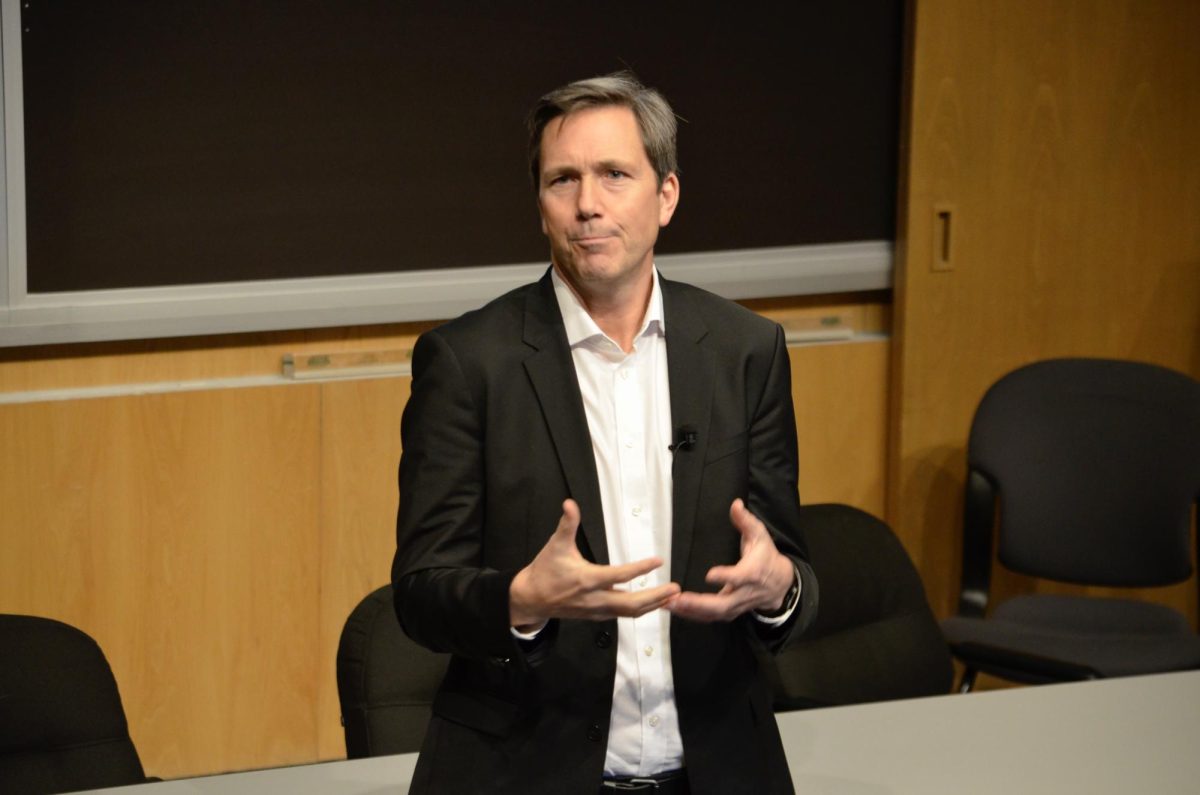Dr. Richard Reeves, writer, scholar, senior fellow at the Brookings Institution and President of the American Institute for Boys and Men, came to Bucknell University to discuss themes and main ideas from his recently published book, “Of Boys and Men: Why the Modern Male Is Struggling, Why It Matters, and What to Do About It“
Reeves started by saying how he believes it is important to talk about the issues that face boys and men and how the debate of gender equality should not be thought of as “zero-sum”: to care about women’s rights does not mean we shouldn’t care about the other. He said it is just as important to talk about “solutions, just as it is to care about addressing the problems”.
Reeves first addressed the political divide in this country between genders, suggesting that women are increasingly liberal and men are increasingly conservative. He also showed how this has caused challenges in dating for the younger generations. Reeves believez that the political divide is a symbol of something deeper.
On this note, Reeves then discussed other recent trends, suggesting that men are facing more struggles than common discourse recognizes.
In regards to suicide, he pointed out that the incidence rate is vastly higher among men than women among all age groups in most of the world.
Reeves also discussed changes in the education system, of which he believes favors women. Women have proven to have better GPAs in high school, while men often have higher standardized test scores. However, with an increasing number of colleges becoming test-optional, they are heavily relying on GPAs as the primary measure of academic success, which would tip the scale towards women, Reeves argued.
Reeves explained this through the psychological argument that girls have more impulse control than boys.
“Girls are not smarter than boys, but girls do get their act together sooner,” said Reeves.
Reeves also claimed that the drastic decrease in male teachers in secondary and primary schools has led to education being “coded as female”. He remarked that while it is important for girls to see representation in themselves in predominantly male roles, boys should also have representation in predominantly female roles, such as teaching, coaching and therapy.
Finally he touched on the social aspects of this country which he classifies as part of the modern struggle with men. Reeves argued that the rise of loneliness and anxiety, and the stigma surrounding men’s mental health, are leading to men’s poor social and emotional wellbeing. Reeves also pointed out that the change in family life and marriage has caused men to struggle with redefining the aspects of fatherhood.
After discussing what he believes are the main issues facing men today, he laid out some solutions he thinks would remedy this struggle. This included redshirting boys by default, creating 1000 new technical high schools and a million more apprenticeships, encouraging a mass recruitment drive of male teachers through male-only scholarships to go into the education field, creating Men’s Resource Centers on every college campus, making scholarships for men into jobs in the liberal arts and humanities parts of the labor market and having paid paternity leave.
After the forum, Reeves stayed to answer questions from audience members who were intrigued by his thoughts on gender, how it relates to things such as politics and religion and how those thoughts coincide with the data he presented.






















